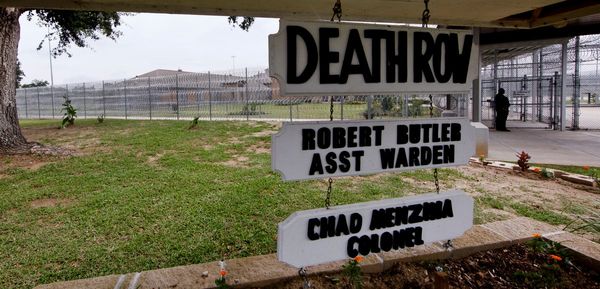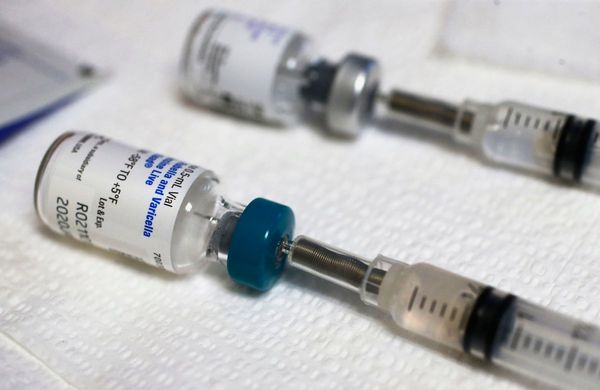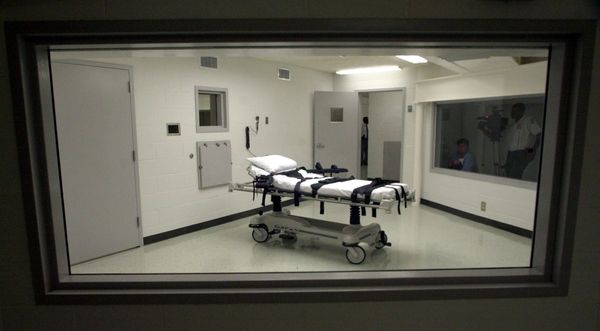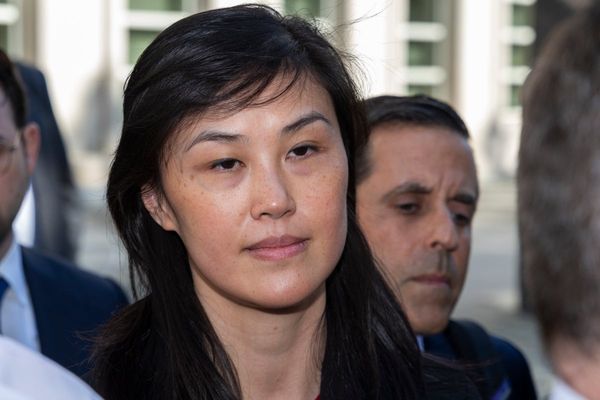
Four struggling South Side Chicago hospitals plan to merge into a single health care system with one new, state-of-the-art hospital and a network of community health centers under a $1.1 billion plan announced Thursday.
Advocate Trinity Hospital, Mercy Hospital & Medical Center, South Shore Hospital and St. Bernard Hospital — serving some of the city’s most impoverished communities — had been negotiating the transformation since last year, guided by the Illinois Department of Healthcare and Family Services, overseer of the Medicaid program poorer patients rely on.
The nonbinding agreement must go before communities served for input, with community meetings to begin as soon as February. A final agreement is expected by the summer.
“Working individually, our hospitals will not be able to provide sustained, quality care on the South Side, given the difficult economic circumstances we’re managing,” St. Bernard President/CEO Charles Holland told the Chicago Sun-Times during an interview with presidents of the four hospitals.
“We’re very committed to working together to make this vision come to fruition,” he said. “We have to aggressively address the need for better health care among tens of thousands of Chicagoans. By forging a system that can better respond to and manage the chronic illnesses so pervasive in our communities, we can truly achieve greater health equity and narrow significant disparities in access to quality care and the resulting outcomes.”
A plan that calls for hospital closings will no doubt bring controversy, coming years after community activists waged a hard-fought battle for a trauma center at the University of Chicago, lamenting the long distances to the nearest hospitals on the South Side.
The 120-year-old Advocate Trinity has 205 beds. Mercy, the city’s oldest hospital at 165 years old and its first teaching hospital, has 402 beds. The 107-year-old South Shore has 136 beds. And the 115-year-old St. Bernard Hospital has 196 beds.
The plan, to be carried out over several years, calls for the one new hospital, with up to six big-box, 30,000 to 50,000-square-foot diagnostic, ambulatory care centers to be built throughout the communities they serve — spanning from Bronzeville to Englewood, South Shore and Southeast Side Calumet Heights neighborhoods.
“We’re absolutely committed to not closing any facilities until a new facility is built, and that could be a community health center,” said Advocate Trinity President Rashard Johnson, stressing the building plan will ensure no net loss in the 3,500 jobs at the four hospitals.
“We recognize that we are economic engines in the communities that we serve, and we are proud of that. This is a substantial investment for our communities on the South Side of Chicago, $1.1 billion, and our anticipation is that we will increase the number of jobs, as well as bringing over 300 new construction jobs,” said Johnson.
Mayor Lori Lightfoot called the announcement “an innovative proposal to ensure Chicago’s South Side residents have access to quality and accessible health care services.”
”We celebrate the hospitals’ commitment to hearing directly from neighborhood leaders and area residents about local needs,” the mayor said in a written statement. “The city also looks forward to close collaboration with the new entity to ensure that promoting health equity and economic growth in the region remain core to any transformation plans.”
All of the hospitals posted net losses in 2018 as inpatient volumes decreased along with government reimbursement for both Medicaid patients and the uninsured. Mercy hemorrhaged the most, at $68.3 million.
But the hospitals maintain the plan is also driven by a need to improve care for communities facing significant health inequities by providing expanded access to preventive care.
“We know that your life expectancy is very impacted by the ZIP code you live in. We also know that the communities we serve have higher incidents of chronic illnesses, as well as food and housing insecurities that contribute to those disparities we see with residents on the South Side,” Mercy President Carol Schneider said.
“This will help us better manage care here on the South Side, keeping residents in their communities, and being able to offer the right care at the right time through the community health centers, so that we are not just seeing them when they get to the emergency room.”
The merged health care system will have more negotiating power with insurers and suppliers and pare duplicate expenses, while taking advantage of state and federal funding for transformative health care initiatives, as well as private philanthropic funding of health equity initiatives in affected communities.
“We’re a small safety-net hospital on the Southeast Side facing significant financial challenges. We know that the status quo is not working. Without a doubt, this is the right thing to do,” South Shore Hospital President/CEO Tim Caveney said.
“We know that the road to the future is through transformation. But input from the citizens of the South Side is extremely important with this transformative plan. We are stakeholders within the community, and we want the community to be behind this and help shape how we move forward. With their help, we know the investments we make will be well worth it.”
John Hoffman, spokesman for the Illinois Department of Healthcare and Family Services, issued a statement: “The challenges in our health care delivery system require public and private partnership. We are encouraged by this group’s goals to address inequities in health care access on the South Side of Chicago and look forward to working with them as they continue to engage community members and leaders. We are ready and willing to talk to any provider that wants to explore coordinated solutions that will ensure ongoing access to needed services to promote health and wellness and empower communities across the state.”
David Smith, founder of a health care consultancy negotiating to buy the former MetroSouth Medical Center in Blue Island, hailed the merger proposal.
“They’re doing the right thing,” Smith said of the four partnering hospitals. He said the industry has to adopt a model of “primary care without walls.” He said the model needs to prioritize “home-based care instead of driving people to institutions.”







